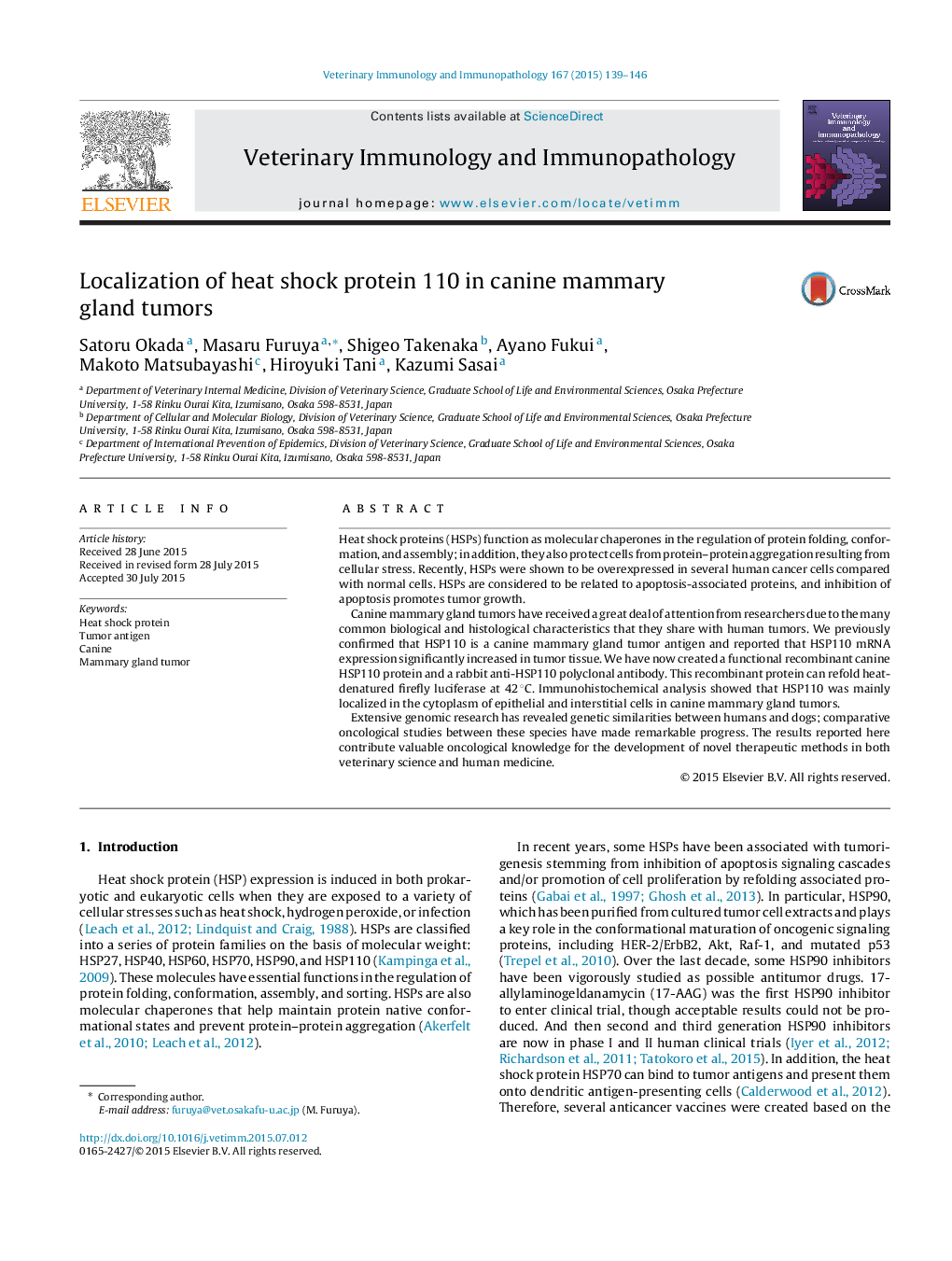| Article ID | Journal | Published Year | Pages | File Type |
|---|---|---|---|---|
| 2461394 | Veterinary Immunology and Immunopathology | 2015 | 8 Pages |
Heat shock proteins (HSPs) function as molecular chaperones in the regulation of protein folding, conformation, and assembly; in addition, they also protect cells from protein–protein aggregation resulting from cellular stress. Recently, HSPs were shown to be overexpressed in several human cancer cells compared with normal cells. HSPs are considered to be related to apoptosis-associated proteins, and inhibition of apoptosis promotes tumor growth.Canine mammary gland tumors have received a great deal of attention from researchers due to the many common biological and histological characteristics that they share with human tumors. We previously confirmed that HSP110 is a canine mammary gland tumor antigen and reported that HSP110 mRNA expression significantly increased in tumor tissue. We have now created a functional recombinant canine HSP110 protein and a rabbit anti-HSP110 polyclonal antibody. This recombinant protein can refold heat-denatured firefly luciferase at 42 °C. Immunohistochemical analysis showed that HSP110 was mainly localized in the cytoplasm of epithelial and interstitial cells in canine mammary gland tumors.Extensive genomic research has revealed genetic similarities between humans and dogs; comparative oncological studies between these species have made remarkable progress. The results reported here contribute valuable oncological knowledge for the development of novel therapeutic methods in both veterinary science and human medicine.
